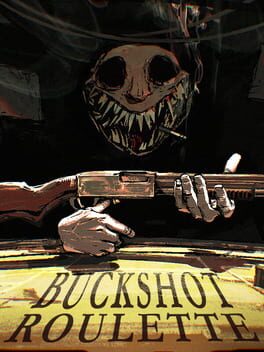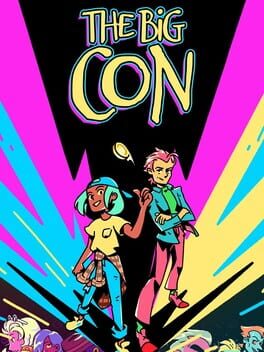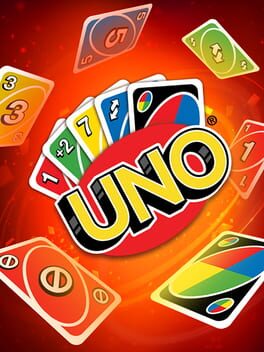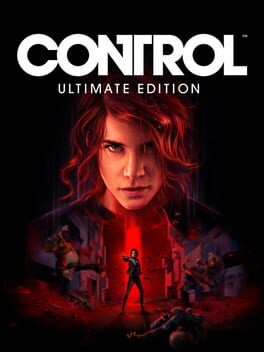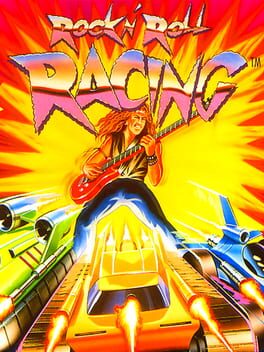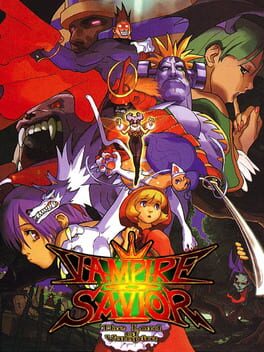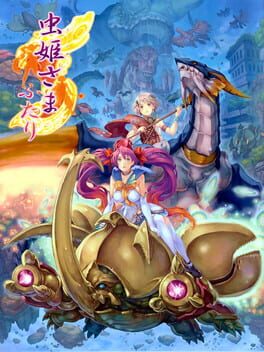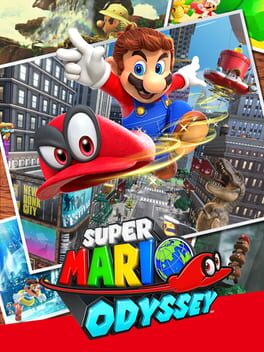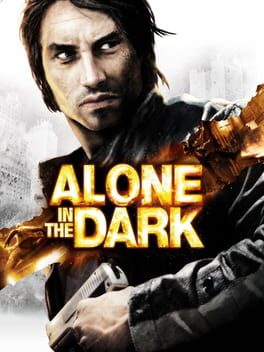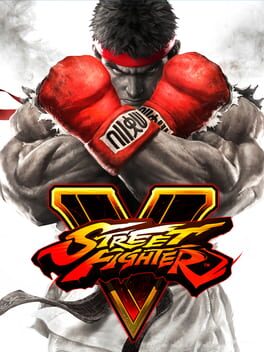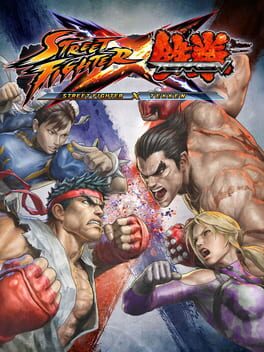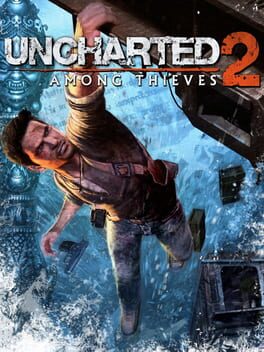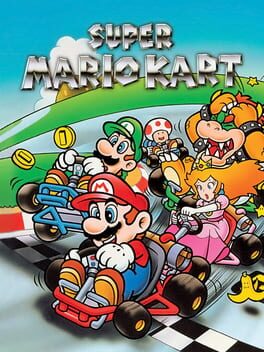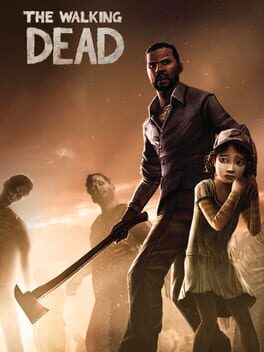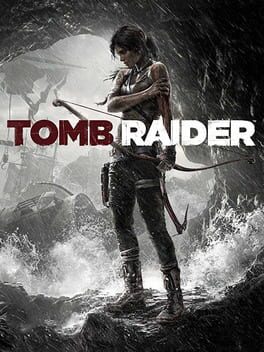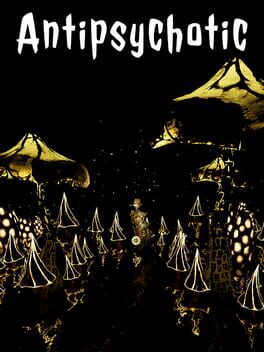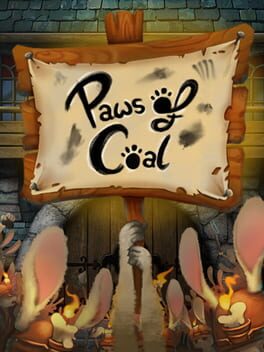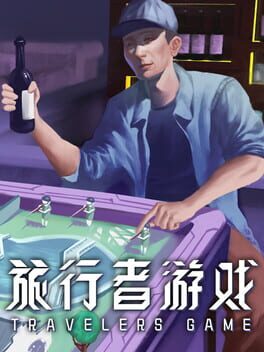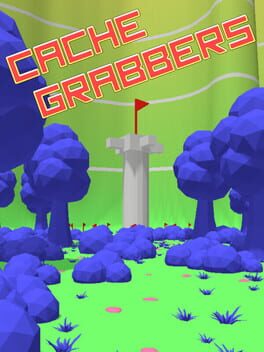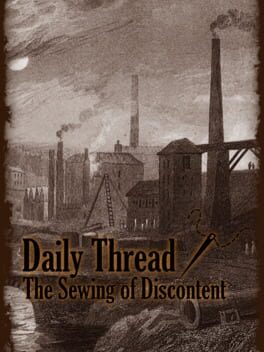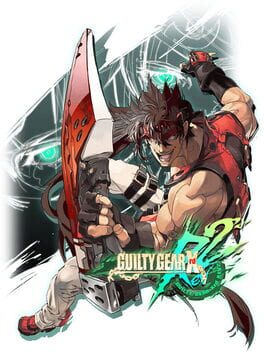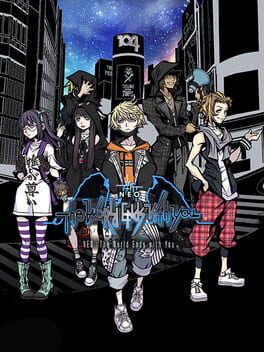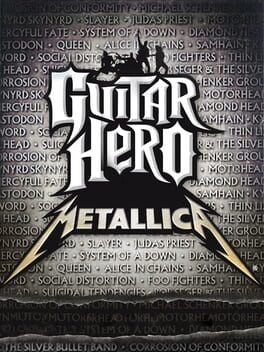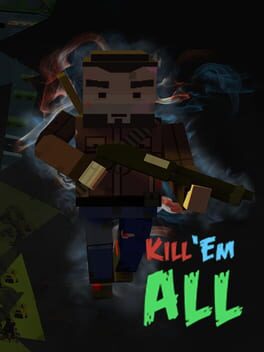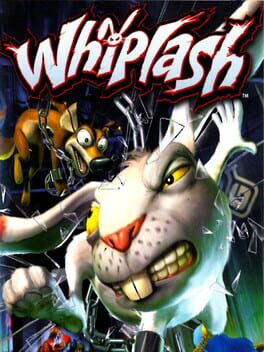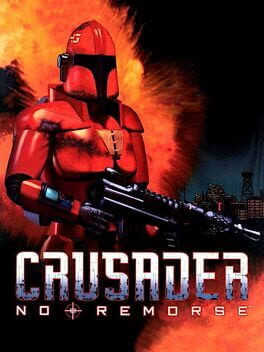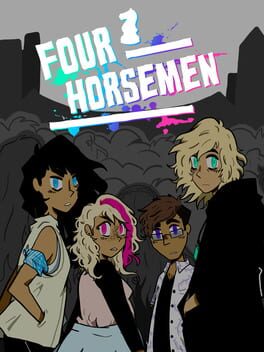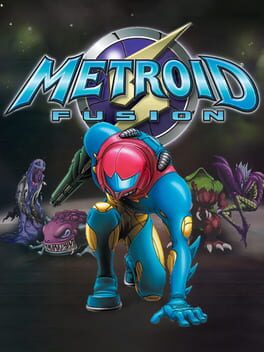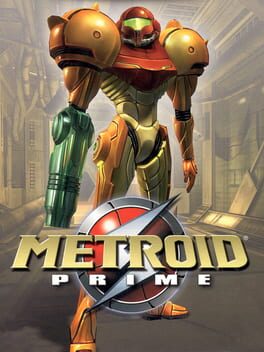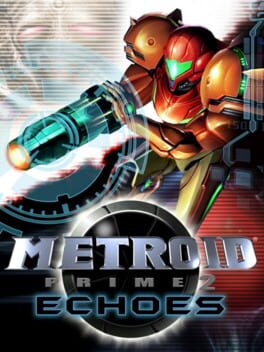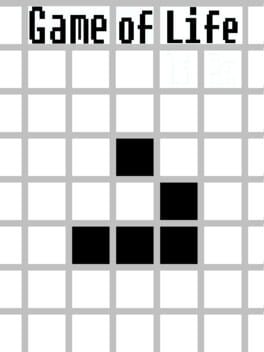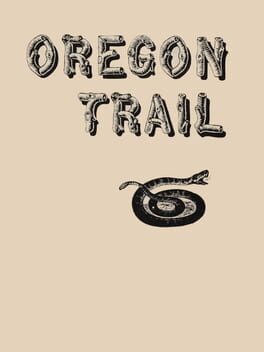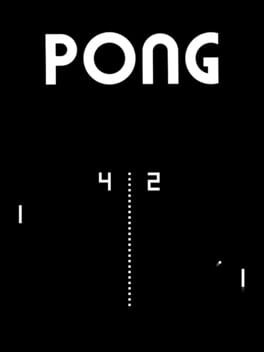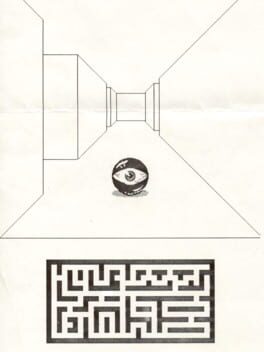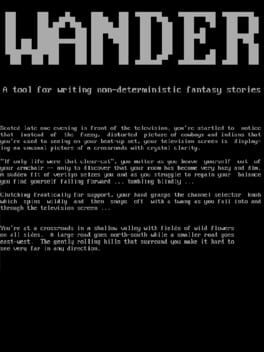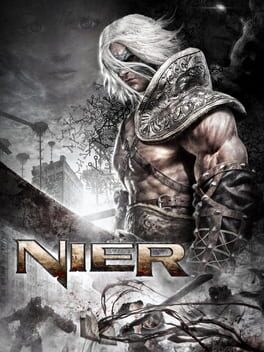577 reviews liked by Phantasm
Fallout
1997
What if some of the most inspired worldbuilding and atmosphere that gaming had to offer was packaged within a near-unplayable pile of garbage?
Frustrating, Infuriating, slow, buggy, REALLY BUGGY, badly designed, and incredibly interesting.
Every time I felt like I was getting into a groove with this game it would throw some obtuse block in my way to prevent me from truly enjoying it. I tried really hard to love this game and part of me does, the other 75% of me wants to kick it down a stairwell
Frustrating, Infuriating, slow, buggy, REALLY BUGGY, badly designed, and incredibly interesting.
Every time I felt like I was getting into a groove with this game it would throw some obtuse block in my way to prevent me from truly enjoying it. I tried really hard to love this game and part of me does, the other 75% of me wants to kick it down a stairwell
One of my favorite games that I never want to play again. When I originally played Breath of the Wild, it was a truly special experience. The sense of exploration and discovery was unlike any game I had played prior. That first blind playthrough was something special, which is a double-edged sword. I usually don't replay games so that isn't something that would really affect me but this game sticks in my mind. Breath of the Wild does not hold up on subsequent playthroughs because you can only play a game for the first time once. However, I believe there is more to how I feel beyond that.
I jumped into each DLC as they came out but never finished them. With each DLC that came out, I was having an increasingly less enjoyable time. Maybe if I played them from the beginning of a fresh save file, things may have been different. But then that leads to the first problem of not being able to play the game blind again. The DLC doesn't feel like it should be played from an existing file, but to enhance a new playthrough. But enough about the DLC itself, whenever I jumped back in, the experience felt hollow and the things to do were tedious. These were feelings that I never felt in my initial 100+ hour playthrough of the base game.
These were all feelings that I felt in Tears of the Kingdom and made me look back on how I actually feel about Breath of the Wild. I have around 50 hours in Tears of the Kingdom and this feeling of hollowness crept in far sooner than its prequel. After the honeymoon phase wore off, I just felt bored with it; copy-pasted activities, Ubisoft towers, and resource gathering. All of these things that I criticize in other games, but I didn't criticize in Breath of the Wild. It made me reflect on Breath of the Wild and wonder how would I feel if I played it for the first time now.
Would I have gushed about it as much as I did when it was new, I don't know. Maybe the hype of getting a new console, that at the time was being scalped to high hell, carried my enjoyment, again I don't know. Another thing that is worth noting, is that this is the first Zelda game I finished. I played many prior but this was the first one to get me to finish, why? Again, I don't know, my feelings are so cloudy on this title. All I know is that Breath of the Wild is one of my favorite games that I never want to play again.
P.S. Weapon durability is fine, you're just too attached to some generic weapon that you'll replace in the next ten seconds.
I jumped into each DLC as they came out but never finished them. With each DLC that came out, I was having an increasingly less enjoyable time. Maybe if I played them from the beginning of a fresh save file, things may have been different. But then that leads to the first problem of not being able to play the game blind again. The DLC doesn't feel like it should be played from an existing file, but to enhance a new playthrough. But enough about the DLC itself, whenever I jumped back in, the experience felt hollow and the things to do were tedious. These were feelings that I never felt in my initial 100+ hour playthrough of the base game.
These were all feelings that I felt in Tears of the Kingdom and made me look back on how I actually feel about Breath of the Wild. I have around 50 hours in Tears of the Kingdom and this feeling of hollowness crept in far sooner than its prequel. After the honeymoon phase wore off, I just felt bored with it; copy-pasted activities, Ubisoft towers, and resource gathering. All of these things that I criticize in other games, but I didn't criticize in Breath of the Wild. It made me reflect on Breath of the Wild and wonder how would I feel if I played it for the first time now.
Would I have gushed about it as much as I did when it was new, I don't know. Maybe the hype of getting a new console, that at the time was being scalped to high hell, carried my enjoyment, again I don't know. Another thing that is worth noting, is that this is the first Zelda game I finished. I played many prior but this was the first one to get me to finish, why? Again, I don't know, my feelings are so cloudy on this title. All I know is that Breath of the Wild is one of my favorite games that I never want to play again.
P.S. Weapon durability is fine, you're just too attached to some generic weapon that you'll replace in the next ten seconds.
Alan Wake
2010
Alan Wake is a very special game for me. Along with the lesser-known Guns, Gore & Cannoli, it's what got me back into video games in 2020 after five 'wilderness years' where I thought I was done with this hobby. It brought me so much joy in a way that simply doesn't come when you're a habitual player. Far be it from me to claim it works for everyone, but I genuinely believe video games cured my depression, and Alan Wake was the game that started this return.
I could not have chosen a better game to get back into the hobby, because even non-gamers would find a lot to appreciate here. Alan Wake has an intriguing story, beautiful graphics and a kick-ass soundtrack. Also, its gameplay isn't very good. So it fulfills all the requirements for a classic survival horror title.
The first two words spoken in this game are 'Stephen King.' Alan Wake is a love letter to the campy, commercial horror that makes up so much of his work. There are shot-for-shot homages to his film adaptations, and the protagonist directly lampshades his knack for turning innocuous objects into horror stories. And just as with some of Stephen King's favourite heroes, the main character is an author. A tweed-suited author, unshaven and unassuming, who can't run three steps without running out of breath. He seems to be have written a story that is coming true, word for word. This gives us such brilliantly meta passages as, "He took out his hip flask when he reached the page that described how he reached the page that made him take out his hip flask." Sam Lake is a great writer himself.
It was an incredible feeling to explore this game's world, and remember how entertaining video games are - I'd forgotten. The chief gameplay gimmick is illumination - in the light you're safe, in the dark they get you. This makes every unlit spot in the game feel like a threat, and street lamps are safe havens. It's tense, and was even more so when I replayed this game because I accidentally selected Hard difficulty without realizing it. The gameplay isn't going to win any awards, however. Alan sucks at cardio, and for a game that heavily advertises Energizer batteries, all it taught me was that they can't even power a dinky torch for 5 seconds. It's a repetitive game, and vestiges of its scrapped open-world design still shine through in the nigh-pointless driving segments.
Yet it still brought me so much joy. The development team might not have known how to make movement feel good, or the gunplay satisfying, but they definitely knew how to create a moment. Fighting off dark demons with the power of heavy metal, fireworks exploding everywhere, is a memory I will treasure forever. Even the small things - the in-game TV programmes, the NPCs in the loony bin and the thermoses you pick up because Alan's body is 75% black coffee - they made me so happy. This re-ignited a video game addiction that has still to subside 4 years later. So thank you, Remedy, and thank you Sam Lake. Now do the face.
I could not have chosen a better game to get back into the hobby, because even non-gamers would find a lot to appreciate here. Alan Wake has an intriguing story, beautiful graphics and a kick-ass soundtrack. Also, its gameplay isn't very good. So it fulfills all the requirements for a classic survival horror title.
The first two words spoken in this game are 'Stephen King.' Alan Wake is a love letter to the campy, commercial horror that makes up so much of his work. There are shot-for-shot homages to his film adaptations, and the protagonist directly lampshades his knack for turning innocuous objects into horror stories. And just as with some of Stephen King's favourite heroes, the main character is an author. A tweed-suited author, unshaven and unassuming, who can't run three steps without running out of breath. He seems to be have written a story that is coming true, word for word. This gives us such brilliantly meta passages as, "He took out his hip flask when he reached the page that described how he reached the page that made him take out his hip flask." Sam Lake is a great writer himself.
It was an incredible feeling to explore this game's world, and remember how entertaining video games are - I'd forgotten. The chief gameplay gimmick is illumination - in the light you're safe, in the dark they get you. This makes every unlit spot in the game feel like a threat, and street lamps are safe havens. It's tense, and was even more so when I replayed this game because I accidentally selected Hard difficulty without realizing it. The gameplay isn't going to win any awards, however. Alan sucks at cardio, and for a game that heavily advertises Energizer batteries, all it taught me was that they can't even power a dinky torch for 5 seconds. It's a repetitive game, and vestiges of its scrapped open-world design still shine through in the nigh-pointless driving segments.
Yet it still brought me so much joy. The development team might not have known how to make movement feel good, or the gunplay satisfying, but they definitely knew how to create a moment. Fighting off dark demons with the power of heavy metal, fireworks exploding everywhere, is a memory I will treasure forever. Even the small things - the in-game TV programmes, the NPCs in the loony bin and the thermoses you pick up because Alan's body is 75% black coffee - they made me so happy. This re-ignited a video game addiction that has still to subside 4 years later. So thank you, Remedy, and thank you Sam Lake. Now do the face.
Persona 3 Reload
2024
This review contains spoilers
"Tell this asshole if he wants to learn how to (re)make my product (game), he's gotta do it my way, the right way!" - Jesse Pinkman
Persona 3 Reload is ultimately a barely passable remake of what I consider the greatest game ever made. I find a large amount of the game’s flaws go ignored among the myriad conveniences the game adds, but they make the game feel like something of a hollow shell of what it used to be.
This can be seen in every aspect of the game, from the very beginning, It’s been well documented already, but the atmosphere that was dripping from the animated cutscenes of the original is completely absent. The opening scene that disorients you, makes you feel as if nothing is as it should be, is replaced with Persona 5 cutscene.mp4. It conveys the story, and that’s all it does – it’s an extension of the same flaws that purveyed Portable. This is an unfortunate trend, as in taking a variety of elements from a game that already seemed to fundamentally misunderstand the source material, it worsens it further. It draws worthless lines from portable that are only there to compensate for a lack of visuals, adds menial things like Junpei’s perversion joke in the train scene, and most offensive, adds the Portable exclusive scene after Minato returns from the final battle. Where the original cut directly from Aigis crying to 3/5, the group now have to announce their individual reactions, turning one of the most beautifully poignant scenes in the game into something standard, dull, and thoughtless.
The modern sheen the game has feels like a coat of paint that hides Reload being a fundamentally worse, less cohesive piece of art than the original. The lighting in the dorm is ruined, draining the atmosphere from one of the most prominent and beloved locations in the game. The dramatic, perfectly framed lighting of the Nyx fight (conveyed acutely in the dancing game) is replaced with…pure green, as is thoughtlessly thrown at every other dark hour scene in the game, which betrays a total lack of thought or care, and makes the game feel like a total rush job. The Orpheus awakening scene, previously a definitive tone setter that acts as the most striking piece of imagery and sound design in the series, can now only be described as underwhelming. Most to all of the little animations the models would enact that made SEES feel so well characterised and alive are absent – and why? For all the bells and whistles the game feels like a sanded down version of what was ultimately a very small-scale game.
Most script changes feel thoughtless and for the worse, making many lines less impactful for no good reason – I can appreciate the attempt to provide a more accurate script to the Japanese version, and this works in some cases, but scenes like Akihiko’s awakening are betrayed by this. Nearly every line change here feels like it lessens the impact of the scene, with worse framing to boot. This is demonstrative of a fundamental lack of understanding of the original that can be seen in the worsening of Akihiko’s character, now adjusted and simplified to be more like his P4U counterpart, one of the most horribly flanderised depictions of a character that I’ve ever seen. I don’t know why anyone on the team thought this was a good idea. Most of the cast do not suffer as much as Akihiko does, but characters like Mitsuru do to a lesser extent, with traits being further emphasised to fit into molds that have been further solidified since the release of the original. One of my favourite scenes in the game is the meeting on the roof between Minato and Junpei, acting as a perfect capstone to one of the most well-thought-out arcs and dynamics in the original game. In reload, it gets replaced with a relatively generic feeling scene between the second-year trio, for seemingly no reason – Junpei does have a link episode that I assume was meant to compensate, but it fails entirely to capture what made that scene great and ends up totally forgettable.
Nearly all of the music is definitively worse – there are highlights, such as the new remix of changing seasons, but the majority have a strangely amateur quality, with the mixing feeling frequently unprofessional. Much of the instrumentals lose all of the impact they once had and Mass Destruction is infamous for this, but for me the worst example of it is in Iwatodai Dorm. I do admittedly love the new vocals, but they can’t save how poor the rest of it sounds. What makes this even more confusing is that all of the original songs are incredible, with Colour Your Night being one of my favourite songs in the franchise, an issue that I can only imagine was from trying to hard to be different from what was already perfect.
Lastly I’ll bring up where I think the game shines – a few key areas that I think fail to elevate the overall package. The combat is wonderfully fun and fluid, and I think theurgies are a satisfactory evolution of the showtime mechanic, but this is undercut by how ludicrously easy the game becomes with barely any effort, an issue that extends to even merciless. While the original was ultimately not a hard game, Reload becomes essentially thoughtless if you know what you’re doing. The combat animations are one of my favourite things the game does, with the way each character shifts to the other never getting tiresome, conveying their personalities and dynamics perfectly. Another is a few of the new character pieces added – I think the game massively elevates Shinjiro and Ken, the tragedy of both characters being emphasised in a way that only makes them more compelling, and Ryoji especially benefits from the greater degree of screentime Reload gives him. I’m glad the bond between him and Minato is now firmly grounded in a version other than the movies.
Personally, I think Persona 3 Reload is a disappointment, and not because it fails to be the “definitive” version many begrudged it for not being. It misunderstands, ignores and discards much of what made the original great, and it fails in aspects I could have never anticipated it would; I think the way the original uniquely excels deserves to be recognised. I still like the game overall, because the skeleton is one of my favourite things ever. But if I had to choose between Reload’s existence and a simple port of FES that bumped up the framerate, it would be an incredibly easy choice; a game that feels so deliberate against a pale imitation.
Persona 3 Reload is ultimately a barely passable remake of what I consider the greatest game ever made. I find a large amount of the game’s flaws go ignored among the myriad conveniences the game adds, but they make the game feel like something of a hollow shell of what it used to be.
This can be seen in every aspect of the game, from the very beginning, It’s been well documented already, but the atmosphere that was dripping from the animated cutscenes of the original is completely absent. The opening scene that disorients you, makes you feel as if nothing is as it should be, is replaced with Persona 5 cutscene.mp4. It conveys the story, and that’s all it does – it’s an extension of the same flaws that purveyed Portable. This is an unfortunate trend, as in taking a variety of elements from a game that already seemed to fundamentally misunderstand the source material, it worsens it further. It draws worthless lines from portable that are only there to compensate for a lack of visuals, adds menial things like Junpei’s perversion joke in the train scene, and most offensive, adds the Portable exclusive scene after Minato returns from the final battle. Where the original cut directly from Aigis crying to 3/5, the group now have to announce their individual reactions, turning one of the most beautifully poignant scenes in the game into something standard, dull, and thoughtless.
The modern sheen the game has feels like a coat of paint that hides Reload being a fundamentally worse, less cohesive piece of art than the original. The lighting in the dorm is ruined, draining the atmosphere from one of the most prominent and beloved locations in the game. The dramatic, perfectly framed lighting of the Nyx fight (conveyed acutely in the dancing game) is replaced with…pure green, as is thoughtlessly thrown at every other dark hour scene in the game, which betrays a total lack of thought or care, and makes the game feel like a total rush job. The Orpheus awakening scene, previously a definitive tone setter that acts as the most striking piece of imagery and sound design in the series, can now only be described as underwhelming. Most to all of the little animations the models would enact that made SEES feel so well characterised and alive are absent – and why? For all the bells and whistles the game feels like a sanded down version of what was ultimately a very small-scale game.
Most script changes feel thoughtless and for the worse, making many lines less impactful for no good reason – I can appreciate the attempt to provide a more accurate script to the Japanese version, and this works in some cases, but scenes like Akihiko’s awakening are betrayed by this. Nearly every line change here feels like it lessens the impact of the scene, with worse framing to boot. This is demonstrative of a fundamental lack of understanding of the original that can be seen in the worsening of Akihiko’s character, now adjusted and simplified to be more like his P4U counterpart, one of the most horribly flanderised depictions of a character that I’ve ever seen. I don’t know why anyone on the team thought this was a good idea. Most of the cast do not suffer as much as Akihiko does, but characters like Mitsuru do to a lesser extent, with traits being further emphasised to fit into molds that have been further solidified since the release of the original. One of my favourite scenes in the game is the meeting on the roof between Minato and Junpei, acting as a perfect capstone to one of the most well-thought-out arcs and dynamics in the original game. In reload, it gets replaced with a relatively generic feeling scene between the second-year trio, for seemingly no reason – Junpei does have a link episode that I assume was meant to compensate, but it fails entirely to capture what made that scene great and ends up totally forgettable.
Nearly all of the music is definitively worse – there are highlights, such as the new remix of changing seasons, but the majority have a strangely amateur quality, with the mixing feeling frequently unprofessional. Much of the instrumentals lose all of the impact they once had and Mass Destruction is infamous for this, but for me the worst example of it is in Iwatodai Dorm. I do admittedly love the new vocals, but they can’t save how poor the rest of it sounds. What makes this even more confusing is that all of the original songs are incredible, with Colour Your Night being one of my favourite songs in the franchise, an issue that I can only imagine was from trying to hard to be different from what was already perfect.
Lastly I’ll bring up where I think the game shines – a few key areas that I think fail to elevate the overall package. The combat is wonderfully fun and fluid, and I think theurgies are a satisfactory evolution of the showtime mechanic, but this is undercut by how ludicrously easy the game becomes with barely any effort, an issue that extends to even merciless. While the original was ultimately not a hard game, Reload becomes essentially thoughtless if you know what you’re doing. The combat animations are one of my favourite things the game does, with the way each character shifts to the other never getting tiresome, conveying their personalities and dynamics perfectly. Another is a few of the new character pieces added – I think the game massively elevates Shinjiro and Ken, the tragedy of both characters being emphasised in a way that only makes them more compelling, and Ryoji especially benefits from the greater degree of screentime Reload gives him. I’m glad the bond between him and Minato is now firmly grounded in a version other than the movies.
Personally, I think Persona 3 Reload is a disappointment, and not because it fails to be the “definitive” version many begrudged it for not being. It misunderstands, ignores and discards much of what made the original great, and it fails in aspects I could have never anticipated it would; I think the way the original uniquely excels deserves to be recognised. I still like the game overall, because the skeleton is one of my favourite things ever. But if I had to choose between Reload’s existence and a simple port of FES that bumped up the framerate, it would be an incredibly easy choice; a game that feels so deliberate against a pale imitation.
Buckshot Roulette
2023
Slowly this year is becoming the year of great reimagined “casino” games. Buckshot Roulette takes the simple premise of Russian Roulette and makes it an indie horror gem.
Gameplay is primarily passing a loaded shotgun back and forth between yourself and a dealer while using a mix of items and luck to turn the odds in your favor. A general run will involve chipping away at your opponent’s health bar before taking away life support to really up the ante. Once a run has been won you will unlock a double or nothing mode that spice ups items and become essentially endless if you are prepared to take the risk for bragging rights.
Buckshot Roulette seems to take place in some kind of secret backdoor Russian nightclub that lends itself greatly to the twisted washed-out horror aesthetic. All runs begin in a dirty bathroom as you pass through a walkway with loud thumping techno music before entering the dealer’s den. At all times you can almost always hear the music muffled through the walls as the sound design is honestly fantastic.
The simple premise makes it easy to pick up and the addictive double or nothing mode is great to try for a high score. With such a low asking price I can’t recommend Buckshot Roulette enough.
Gameplay is primarily passing a loaded shotgun back and forth between yourself and a dealer while using a mix of items and luck to turn the odds in your favor. A general run will involve chipping away at your opponent’s health bar before taking away life support to really up the ante. Once a run has been won you will unlock a double or nothing mode that spice ups items and become essentially endless if you are prepared to take the risk for bragging rights.
Buckshot Roulette seems to take place in some kind of secret backdoor Russian nightclub that lends itself greatly to the twisted washed-out horror aesthetic. All runs begin in a dirty bathroom as you pass through a walkway with loud thumping techno music before entering the dealer’s den. At all times you can almost always hear the music muffled through the walls as the sound design is honestly fantastic.
The simple premise makes it easy to pick up and the addictive double or nothing mode is great to try for a high score. With such a low asking price I can’t recommend Buckshot Roulette enough.
The Big Con
2021
The Big Con (2021) is a game with some charming 90's aesthetics and clearly had a lot of passion put into it. so,, what even is it?
(story premise spoilers ahead)
essentially, you're a teenager named Alison (goes by Ali) who plays the trombone and lives alone with her mom in a "mom-and-daught" video store. every year, Ali goes to band camp to work towards her mom's dream of her getting into a prestigious arts university. however, the eve before she leaves, she learns her mom is being extorted by a gangster of sorts for approximately $97k, and if they can't pay it off, they're completely fucked and will be bought out by a chain video store. taking it upon herself to gather the funds, she takes to the streets and quickly meets a con artist named Ted, who claims he has the solution to her money problems and becomes a mentor of sorts teaching her how to pickpocket and get extra change out of cashiers and such. they set off on a cross country journey together to pull off a Big Con (holy shit !!!! title reference !!!) and go from locale to locale stealing and grifting their way into riches.
this is where we get into the gameplay. generally speaking, you'll enter a new area and be given a blanket goal, usually in the form of some money threshold to reach. achieve it, and you can talk to your partner and move on. essentially every npc can be pickpocketed, performed by holding down a button until the oscillating arrow lands in the shrinking zone on a pop-up UI. it's a simple, timing-based minigame that scales proportionally to the amount of money on the mark, but it gets old quickly thanks to how frequently you'll need to steal shit. to the game's credit, there is an accessibility option to completely disable the pickpocket minigame, though i never used it. you walk around, talk, and eavesdrop on people to gain information that is automatically added to your journal kept in your fanny pack. it tracks your goals, as well as exploitable characteristics of people that you can use to your advantage in conversation to con people out of their money. overheard someone's anniversary date and learn that their bags are sitting unattended in the lobby of the hotel? hop on over there and use the date as the combo for the luggage! shit like that, basically.
a lot of this sounds like it could be pretty cool and as though it may have a lot of depth, but in practice, i don't really think it does. after a while, the gameplay feels pretty one-note and almost pointless. it got to the point that it felt like i was wasting my time every time i actually engaged in the core mechanics, which isn't a good sign to me. although i felt it eventually devolved into chore territory, it's still a goofy little time. conversations take place on a very 90's background and Ali frequently makes jokes about literally everything that happens. is it hit or miss? yeah! is the game extremely camp? yeah! there's a fucking option in the settings to enable a laugh track. Ali frequently hallucinates a talking bedsheet-ghost (Rad Ghost) who constantly reminds her not to do drugs and functions as a hint system of sorts. that's a silly little concept! the story is predictable, yet it's strangely comforting with how dedicated it is to pulling off the vibe of a 90's teen adventure flick. it hits so many common narrative beats of the genre. there's a little bit of minorly gay content (wahoo!), and it's extremely casual and normalized, which makes me happy.
overall, this game is pretty silly and lighthearted. it's nothing too special, but if you're looking for a silly little 90's con movie-like experience without a deep plot, this could be a good fit. maybe i woulda enjoyed it a little more if i was actually alive and conscious during the 90's, but that's just like my fucking bad i guess. oops!
(story premise spoilers ahead)
essentially, you're a teenager named Alison (goes by Ali) who plays the trombone and lives alone with her mom in a "mom-and-daught" video store. every year, Ali goes to band camp to work towards her mom's dream of her getting into a prestigious arts university. however, the eve before she leaves, she learns her mom is being extorted by a gangster of sorts for approximately $97k, and if they can't pay it off, they're completely fucked and will be bought out by a chain video store. taking it upon herself to gather the funds, she takes to the streets and quickly meets a con artist named Ted, who claims he has the solution to her money problems and becomes a mentor of sorts teaching her how to pickpocket and get extra change out of cashiers and such. they set off on a cross country journey together to pull off a Big Con (holy shit !!!! title reference !!!) and go from locale to locale stealing and grifting their way into riches.
this is where we get into the gameplay. generally speaking, you'll enter a new area and be given a blanket goal, usually in the form of some money threshold to reach. achieve it, and you can talk to your partner and move on. essentially every npc can be pickpocketed, performed by holding down a button until the oscillating arrow lands in the shrinking zone on a pop-up UI. it's a simple, timing-based minigame that scales proportionally to the amount of money on the mark, but it gets old quickly thanks to how frequently you'll need to steal shit. to the game's credit, there is an accessibility option to completely disable the pickpocket minigame, though i never used it. you walk around, talk, and eavesdrop on people to gain information that is automatically added to your journal kept in your fanny pack. it tracks your goals, as well as exploitable characteristics of people that you can use to your advantage in conversation to con people out of their money. overheard someone's anniversary date and learn that their bags are sitting unattended in the lobby of the hotel? hop on over there and use the date as the combo for the luggage! shit like that, basically.
a lot of this sounds like it could be pretty cool and as though it may have a lot of depth, but in practice, i don't really think it does. after a while, the gameplay feels pretty one-note and almost pointless. it got to the point that it felt like i was wasting my time every time i actually engaged in the core mechanics, which isn't a good sign to me. although i felt it eventually devolved into chore territory, it's still a goofy little time. conversations take place on a very 90's background and Ali frequently makes jokes about literally everything that happens. is it hit or miss? yeah! is the game extremely camp? yeah! there's a fucking option in the settings to enable a laugh track. Ali frequently hallucinates a talking bedsheet-ghost (Rad Ghost) who constantly reminds her not to do drugs and functions as a hint system of sorts. that's a silly little concept! the story is predictable, yet it's strangely comforting with how dedicated it is to pulling off the vibe of a 90's teen adventure flick. it hits so many common narrative beats of the genre. there's a little bit of minorly gay content (wahoo!), and it's extremely casual and normalized, which makes me happy.
overall, this game is pretty silly and lighthearted. it's nothing too special, but if you're looking for a silly little 90's con movie-like experience without a deep plot, this could be a good fit. maybe i woulda enjoyed it a little more if i was actually alive and conscious during the 90's, but that's just like my fucking bad i guess. oops!
Signalis
2022
This review contains spoilers
Now that I've had a bit of time to collect my thoughts about this game I still find myself struggling to put into words how exactly I felt about Signalis after beating it, I've seen my fair share of bleak settings, but I think this one takes the cake for how brutal it can be for the characters of its own universe.
It's haunting, dreadful, merciless, and it's communicated to the player extremely well through gameplay, thanks to its overwhelming atmosphere, cryptic storytelling, and how it feels like you are never truly safe from what might be lurking around the corner. And while I think it suffers a bit from its excessive backtracking, it's still worth giving a shot, specially if you enjoy puzzle games.
One thing I'm certain about once the credits rolled, is that now I understand why its fandom is so obsessed with portraying Elster and Ariane in wholesome and cutesy situations, because it's the only thing that might save them from the overbearing feeling of Existential Dread that at least my ending (Promise) left me. But at least, I can find solace in knowing that they both went out together, to a place where time doesn't exist, to a place where they can dance together to the rhythm of the music, to a place where Ariane can finish her paintings, to a place where they can both feel whole again.
It's haunting, dreadful, merciless, and it's communicated to the player extremely well through gameplay, thanks to its overwhelming atmosphere, cryptic storytelling, and how it feels like you are never truly safe from what might be lurking around the corner. And while I think it suffers a bit from its excessive backtracking, it's still worth giving a shot, specially if you enjoy puzzle games.
One thing I'm certain about once the credits rolled, is that now I understand why its fandom is so obsessed with portraying Elster and Ariane in wholesome and cutesy situations, because it's the only thing that might save them from the overbearing feeling of Existential Dread that at least my ending (Promise) left me. But at least, I can find solace in knowing that they both went out together, to a place where time doesn't exist, to a place where they can dance together to the rhythm of the music, to a place where Ariane can finish her paintings, to a place where they can both feel whole again.
Uno
2016
How do you take one of the most simple card games of all time and make it a barely functional mess where people are booted from games left and right because Ubisoft can't correctly optimise their games? There were so many hoops I had to jump through just to OPEN the game, and when I went in I found out they removed a lot of custom features from the game, such as profile pictures and cards. And other features that weren't removed were turned into 'DLC' that you had to pay for despite the fact you already payed for the barely functioning game in the first place. You'd be better off keeping your $10 and just using the web browser version of the game or Tabletop Simulator.
Signalis
2022
Wow, what a masterpiece. This definitely made its way into my all time favorite games and is one of the best horror games I’ve ever played. It’s an incredible piece of survival horror with its own unique style and some of the best art direction I’ve ever seen. What it takes and honors from its predecessors it does masterfully.
I’m still in awe of this games style and imagery. The way it mixes dystopian future, multiple languages, with this lovecraftian Silent Hill esque gore is amazing. It also has potent themes that give this existential horror dread. The gameplay is a blast and I love all the Resident Evil item management mechanics. The puzzles are tough but really fun to figure and really well made. The level design is perfect as well. The soundtrack is hauntingly eerie, but beautiful.
All in all one of my favorite games ever and had a really big impact on me
I’m still in awe of this games style and imagery. The way it mixes dystopian future, multiple languages, with this lovecraftian Silent Hill esque gore is amazing. It also has potent themes that give this existential horror dread. The gameplay is a blast and I love all the Resident Evil item management mechanics. The puzzles are tough but really fun to figure and really well made. The level design is perfect as well. The soundtrack is hauntingly eerie, but beautiful.
All in all one of my favorite games ever and had a really big impact on me
Control is another incredibly unique experience from Remedy. From its gripping start that left me wanting more, to plenty of secrets and rich lore waiting to be uncovered, it's a game that pulls you in and keeps you hooked. The intriguing storyline, the immersive atmosphere, the amazing sound design, and the sheer thrill and fun of hurling all kinds of objects at otherworldly beings all contribute to its unique charm.
But as the hours passed, the gameplay loop of navigating the same environments, fighting the Hiss, and cleansing the control points started to feel a bit too repetitive. While the storytelling remained creative and engaging, the lack of variation in enemies and scenery became a noticeable drawback. This honestly slowed me down quite a bit as my play sessions became less and less frequent. As much as I love story-driven games, the gameplay loop just didn't click with me as much as I wish it did. Which is a shame, because the actual gameplay with all the fun physics and abilities is buttery smooth.
Overall, I'm glad that I finally got the time to play Control and experience something special. Just like Alan Wake, Control stands as a fantastic testament to creative storytelling. It's a perfect example of how story-driven games can unfold in innovative ways.
And the Ashtray Maze was just freaking awesome. Ahti has great taste in music.
But as the hours passed, the gameplay loop of navigating the same environments, fighting the Hiss, and cleansing the control points started to feel a bit too repetitive. While the storytelling remained creative and engaging, the lack of variation in enemies and scenery became a noticeable drawback. This honestly slowed me down quite a bit as my play sessions became less and less frequent. As much as I love story-driven games, the gameplay loop just didn't click with me as much as I wish it did. Which is a shame, because the actual gameplay with all the fun physics and abilities is buttery smooth.
Overall, I'm glad that I finally got the time to play Control and experience something special. Just like Alan Wake, Control stands as a fantastic testament to creative storytelling. It's a perfect example of how story-driven games can unfold in innovative ways.
And the Ashtray Maze was just freaking awesome. Ahti has great taste in music.
175 lists liked by Phantasm
by Zombief |
50 Games
by Zombief |
9 Games
by Zombief |
26 Games
by djyunghoxha |
8 Games
by LordDarias |
20 Games
by G0dot |
9 Games
by Vee |
55 Games
by QuentTheSlayer |
12 Games
by C_F |
11 Games
by woodoo |
20 Games




